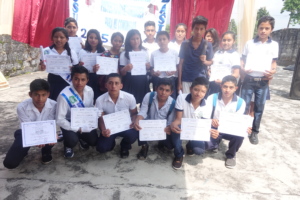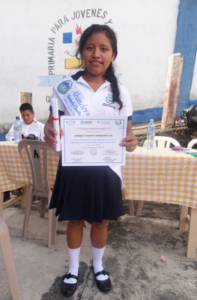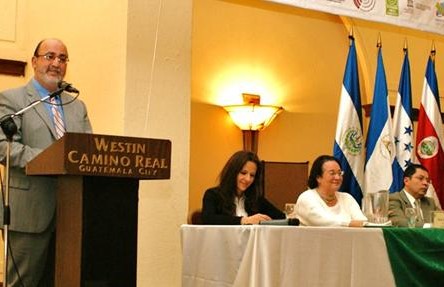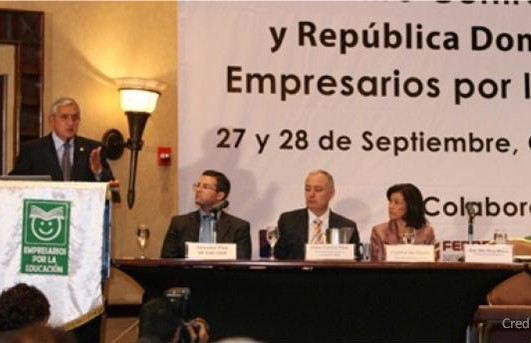PREAL International Conference 2010: Teacher Effectiveness
Summary of PREAL’s recent international conference on teacher effectiveness, held in Guatemala City.

In an increasingly globalized and technologically connected world, migrants have a number of ways to stay connected with their home country, both socially and economically. Remittances are an important example, though certainly not the only one.
According to data from the Central Bank of Guatemala, remittances reached $8.19 billion in 2017, which amounts to roughly 75 percent of the value of Guatemalan exports. In addition to sending remittances, a small but important percentage of migrants invest in their country and/or participate in philanthropic efforts, such as support for educational programs.[1]
Though Guatemala has certainly achieved progress in terms of educational access, educational quality remains an issue that requires additional attention. To cite one example, only one fifth of students in middle school (nivel básico) and high school (nivel diversificado) reach national standards in Math and Reading in Guatemala.[3] Therefore, Opportunities for My Community’s extracurricular program addresses an important educational need.

Since its start, the project has promoted educational efforts, bringing together Guatemalan diaspora groups, development organizations, and remittance companies in order to explore possible alliances for education in Guatemala.
As a result of these meetings, the partnership between the project and the diaspora organization Unidos por El Palmar was established, bringing an extracurricular program for children to the Guatemalan municipality of El Palmar.
This partnership seeks to strengthen education and offer new opportunities to students at the middle school level in El Palmar. It allows students from this community to participate in the B’etil Diploma for the Development of Professional Skills, where they develop skills that will help them when they join the labor market.
Unidos por El Palmar, working with three local volunteers, coordinates with the relevant educational authorities and secures a physical space to carry out the classes. The three volunteers also teach the classes, reaching around 160 students over the course of the 2017 and 2018 academic years. Meanwhile, the project has provided trainings, learning materials, and technical support for the teachers.
To participate in the first graduation of the Diploma program, the president of Unidos por El Palmar traveled to Guatemala from the United States where she is based. She committed to continue working with the project, noting that “We have various requests from other schools that have heard about the program, and they want it brought to their towns and villages as well.” (To hear the complete interview, see the following video).
The program also has the support of the Municipal Technical Coordinator from the Guatemalan Ministry of Education, (see video link for an interview), as well as the school principal. At the end of the 2017
school year, 37 students earned diplomas, signifying that they had successfully completed 60 extracurricular hours of study in math, language and entrepreneurship.
The success of the experience in El Palmar motivated two additional diaspora groups to join the project. The Asociación de Migrantes Catarinecos and the organization Red Migrante are supporting the implementation of the B’etil Diploma in their communities (Santa Catarina Mita, Jutiapa and Nueva Concepción, Escuintla, respectively), indicating the high potential for replicability of these types of partnerships.

In the case of Santa Catarina Mita, the Asociación de Migrantes Catarinecos has worked with the project to train teachers in the program methodology in order to bring the B’etil Diploma to this community. In addition, the Association has been in close contact with the municipal supervisor from the Guatemalan Ministry of Education, who on numerous occasions has expressed her support for the project.
Thanks to a shared interest in the community of Nueva Concepcion, Escuintla, Red Migrante is working with the remittance company Intermex to sponsor two additional teachers in that municipality and Intermex has indicated that it would like to help Red Migrante by covering one of those salaries. The two teachers have worked with more than 400 students in a local school.

For one of the volunteer teachers in El Palmar, these partnerships represent an important opportunity for schools and communities in Guatemala, serving to fill educational gaps. She notes that “we work with young people that have many needs and problems, but despite the difficulties, it is a wonderful thing to bring educational opportunities to kids who need it. The project served to strengthen and reinforce the education that they receive during the normal school day.”
The partnerships that have been created are key to implementing the program, but their impacts go beyond the project itself. The social capital that is created remains and can serve as the basis for new projects and partnerships that benefit Guatemala.
Summary of PREAL’s recent international conference on teacher effectiveness, held in Guatemala City.
Links to agenda and media coverage of a conference on the state of the teaching profession in Guatemala.
Business and education leaders discuss business sector engagement in education reform in Latin America.


